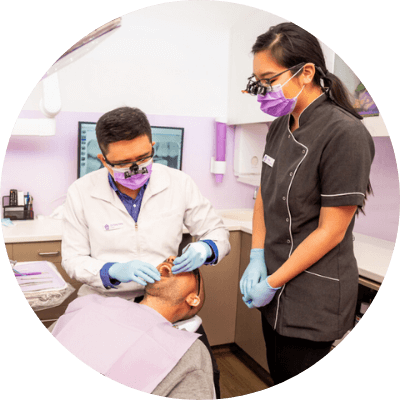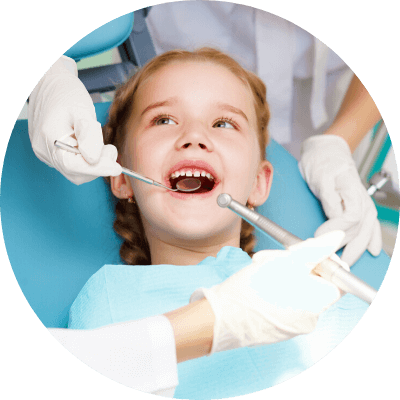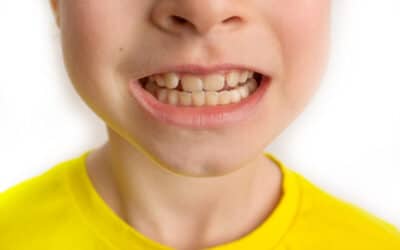Can You Stop a Cavity Getting Worse?
Can You Stop a Cavity Getting Worse?
You may not know what the bacterium Streptococcus mutans is, but you know what a cavity is.
Also known as caries in both the singular and plural, they’re tiny holes in the teeth caused by surface bacteria creating acid from sugars. Somehow my brain interposes ‘cavity/caries’ every time and comes up with guinea pigs – the frankenword result of ‘cavy’. The image accompanying that is a whole lot of guinea pigs running around a giant mouth with cavities for homes.
Anyway …
The sticky film of plaque has Streptococcus mutans the common culprit. The acids it produces demineralises tooth enamel, which mostly consists of calcium and phosphate. This erosion causes microscopic holes and once the damage reaches the dentin layer underneath, a cavity forms.
At this point, you won’t be able to treat it at home. You may be able to stop it getting bigger, but the cavity as it is will remain. So no; you can’t stop a cavity getting worse – if you mean that it could eventually heal.
Cavities need to be filled, so once it’s there, dental intervention is the only fix. Although there are undoubtedly exceptions to the rule, there is no reliable treatment you can do at home to repair caries. The value of home remedies is that they can help prevent them, with useful remineralising techniques that treat, and often heal the tiny holes prior to a cavity developing.
Some home remedies are expansions on a medical journal publication of March, 1932. That’s not to denigrate them, but to simply offer origin. The Influence of a Cereal-Free Diet Rich in Vitamin D and Calcium on Dental Caries in Children by C. Lee Pattison, M.B, B.S suggested cavities are caused by a lack of vitamin D, necessary for the absorption of calcium. In the study, added vitamin D showed a reduction in cavities, but the children who also had grains removed from their diet proved the best results. Grains can stick to, and between teeth, creating good Streptococcus mutans environments, and as carbohydrates, sugars are also produced.
And we know what that does to teeth…
While deficit vitamin D certainly compromises health and makes teeth more susceptible to cavities, it’s still only one of the risk factors. Dry mouth, frequent snacking, inadequate brushing and acid reflux are also contributors.
Throw in genetics, unhealthy diet, pollutants, certain medications and even depression and there’s little left that doesn’t impact our overall oral health.
Clinical trials on the benefits of chewing sugar-free gum after meals shows that enamel remineralises. Because of its ability to stimulate saliva flow, raise plaque pH, and reduce S. mutans, xylitol gum has been extensively researched and results are positive.
The compound CPP-ACP (casein phosphopeptide-amorphous calcium phosphate), a bioactive, milk-product based agent appears to reduce S. mutans even more than xylitol, but certainly both are effective. Xylitol has antibacterial qualities that have also been found to assist good gum health which could prove an added bonus.
Oil pulling is a home oral health option. This ancient practice involves swishing a tablespoon of sesame or coconut oil around the mouth for about 20 minutes, and spitting it out. Claims that oil pulling isn’t backed up by evidence appear to belie a 5,000 year old Ayurvedic medicinal approach that has been adopted by billions and billions of people over thousands of years.
I doubt Colgate-Palmolive can claim that.
Oil pulling is a traditional Indian remedy for among other things, the prevention of tooth decay, bad breath, bleeding gums, throat dryness, and cracked lips. There is proven connection between oral, and overall health, and there is a scientifically recognised and direct relationship with human heart health. The oil also boosts the immune system and its antimicrobial properties that fight various oral pathogens, that in turn acts as an effective plaque-controlling agent.
In 2009 the first study was carried out on oil pulling in a small, triple-blind, placebo-controlled clinical trial. It showed a reduction in the plaque index, modified gingival scores, and total colony count of aerobic microorganisms in the plaque – a highly useful combatant for gingivitis, which is anaerobic.
In 2020 another study evaluated the benefit of oil pulling as an adjunct to normal brushing in adults. Participants were directed to brush for 3 minutes twice a day, and toothbrush and toothpaste were provided. Half the subjects were instructed to include oil pulling into their normal oral hygiene routine and collected data were subject to the appropriate statistical testing.
The results were indeed promising.
There is a significant reduction in the mean gingival index and mean plaque index when coconut oil pulling is included in oral hygiene practices. It proves a safe, usable, and cost-effective method of greatly maintaining and improving oral health, with minimal side effects. Should you decide to try it for yourself, be aware of how to do it and when it is best done, because there are a few useful rules to apply in order to maintain nutritional absorption and also to achieve the best results.
So amid the cries of more studies required for confirmation, it would seem the results speak for themselves.
According to a 2011 study, extract of the Chinese liquorice plant (Glycyrrhiza uralensis) can also combat the bacteria responsible for dental cavities, and a liquorice lollipop was developed to help prevent tooth decay. It too, was shown to be effective in reducing S. mutans bacteria.
Now that’s the type of lollipop a dentist could give!
Health certainly doesn’t have to be remedied by medication and intervention from the get-go. Whether they’re anecdotal, or the placebo effect, home remedies and alternative therapies – including acupuncture, TCM, sound therapy and binaural rhythms – have brought positive results for many, and there are other techniques and methods to explore and consider.
Just make sure that among them are regular 6-monthly check-ups with your Sunbury dentist. That’s the best way to stop you googling whether or not you can stop a cavity getting worse; you simply won’t have any.
Note: All content and media on the Sunbury Dental House website and social media channels are created and published online for informational purposes only. It is not intended to be a substitute for professional medical advice and should not be relied on as health or personal advice.
Services we mentioned:
More Dental Articles
Some Sweet News For Diabetes Sufferers With Gum Disease
Diabetes type 2 is a scourge for sufferers and those with it know that well. Here is some sweet news for diabetes sufferers with gum disease. A new study performed at the University of Buffalo School of Dental Medicine made some helpful findings in this regard. The...
Bruxism In Children: Is It Influenced By Screen Time And Sugar?
Children gnashing & grinding their teeth asleep in bruxism – a scene from a horror movie. Overstimulation of sensitive minds…
Let The New Year Bring New Commitment To Your Oral Care
If you can be inspired to make one new year’s resolution this year let it be for your dental health. Let the New Year bring new commitment to your oral care in 2024 and beyond. This is no mere dentist’s selfish wish but a call for an understanding about just how...
The Alarming State Of Global Oral Health
This is not because of the rise in conflicts in Ukraine and Israel but because of the alarming state of global oral health. I am not being…















